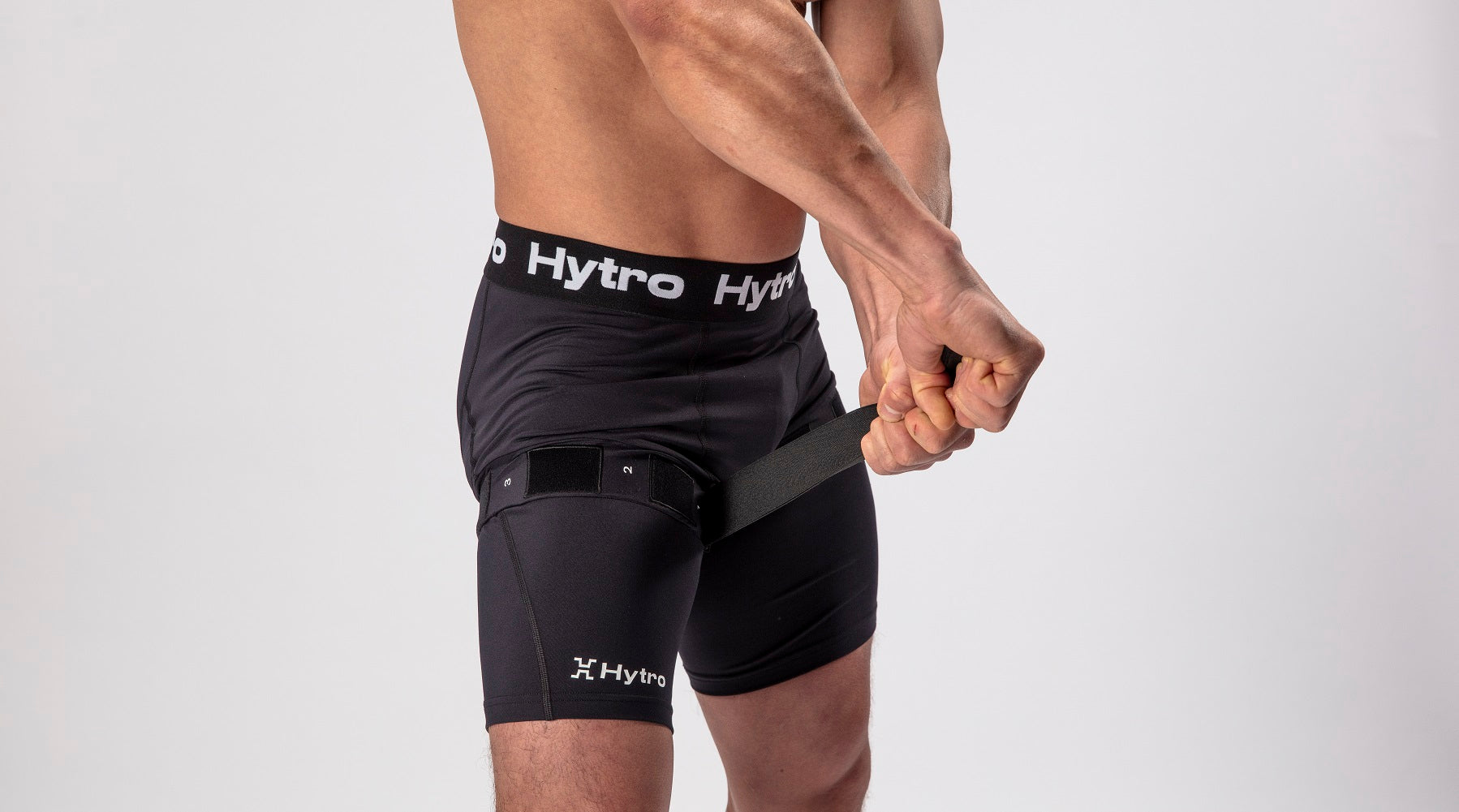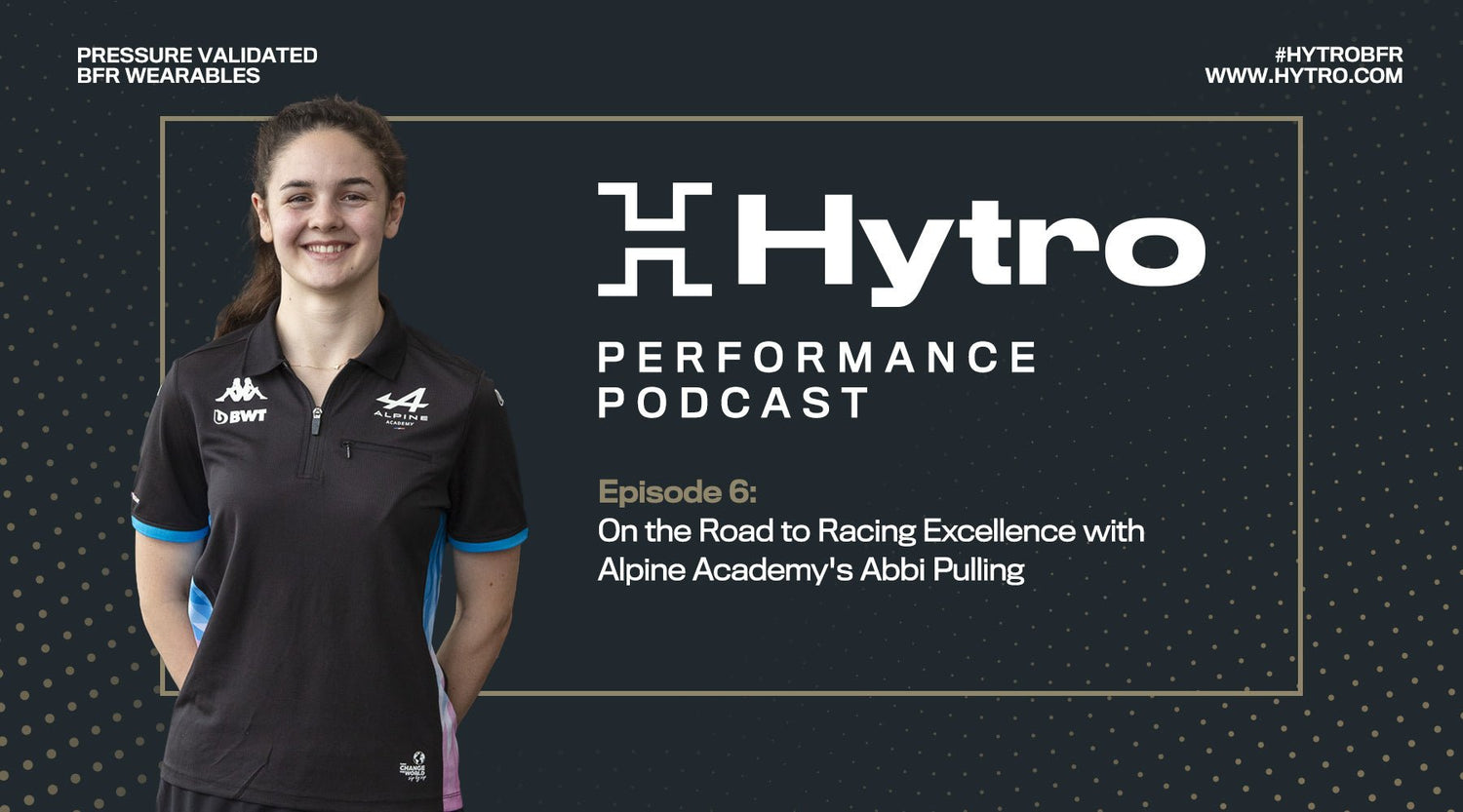In the latest episode of the Hytro Performance Podcast Richard Frost, Hytro's Chief Marketing Officer, interviewed Abbi Pulling, of the Alpine Academy, who offered an in-depth look into her journey from a karting enthusiast to a professional driver backed by the Alpine Academy.
From karting beginnings to professional racing
Abbi's journey into motorsport began at a tender age she recalled, "I started karting at the age of eight. I was always there with my dad”. This father-daughter duo laid the foundation for her early career, with her father doubling as her mechanic, their mantra was to always enjoy it, "even when I was at the point when I was 13, 14 years old competing for British titles, every time he pushed me out it was still, you know, have fun."
Abbi's early influences were rooted in MotoGP, owing to her father's passion for motorbikes. "I never grew up watching Formula One. My dad raced on motorbikes, so I very much grew up watching MotoGP," she says. However, as her karting prowess grew, she began to contemplate the next steps in her racing career. After securing back-to-back karting championships, it became clear that she needed to transition to car racing, although the path forward was not immediately evident. "We went into car racing, which was amazing. To be honest, I didn't have too much guidance," Abbi admits.
The role of mentorship
The turning point in Abbi's career came with the guidance of Alice Powell, a seasoned driver who now manages her. "We got in touch with Alice. She had been through it all, and she basically told me, you need to do this in the gym, you need to do more tests, you need to do this, do that," she recounts. This mentorship has been invaluable, helping Abbi navigate the complex world of motorsport and make informed decisions about her training and career progression.

The transition to car racing
Transitioning from karting to car racing presented its own set of challenges, particularly in terms of understanding the technical and physical demands of the sport. Abbi credits her initial learning curve to her father’s basic understanding of racing lines, although she quickly realised that car racing required a different approach. "My dad had a basic understanding of a racing line, but a racing line on a motorbike is very different to a racing line on four wheels," she explains.
Abbi's journey also involved a shift in her physical training regimen. Initially, her gym sessions were unstructured. "I don't think it was the most productive stuff, to be honest. I'd throw some weights around and think, oh, that felt like I did something," she jokes. It was only after joining the Alpine Academy that she gained a deeper understanding of the specific physical conditioning required for high-level racing. "I've been working with Vallis, it's opened my eyes. Oh, actually, I need to do this and target this to maximise it."
Mental and physical preparation
The demands of motorsport require a well-rounded athlete, as Abbi notes. "I think you've got to be super well-rounded. Not just focus on the physical side, but the mental, and technical. There's so many little details that go into all of it." This holistic approach includes rigorous physical training, technical skills, and mental resilience.
Physical conditioning becomes increasingly critical as drivers move up the ranks. "When you go up to Formula 3, you need a bit more power in your upper body because there's a lot more downforce, and there's no power steering like your road car. So, it means you've got to really, really muscle it," Abbi elaborates. The importance of a strong neck and core is particularly emphasised due to the high G-forces experienced in racing.
Mental strength is just as important as physical prowess in racing. Abbi highlights the need for quick recovery from setbacks and maintaining focus. "You've got to put things down to what was in your control and what was out of your control. And then the things that were in your control, better it for next time," she advises. This mindset helps her stay positive and focused.

The importance of recovery
Recovery is a crucial aspect of an athlete's routine, especially in a sport as demanding as racing. Abbi emphasised “If you are feeling a bit fatigued the next day in a car, it's not ideal, so you need to be very good at recovering.” Abbi shares her approach to recovery, which includes using Hytro BFR, contrast showers, and sometimes just a warm bath. Abbi shared, “I really like doing the Hytro because it's so easy to do. You know, I do my cycle, and then I can sit on my bed and strap myself up.
Looking ahead
Abbi aims to continue driving and competing at a high level. "At this stage, in five years, I just want to stay driving. I just want to stay competing at a high level and showing that I can race against whoever I want to be at the front and that's hopefully where I see myself in five years."
Abbi is passionate about encouraging more female participation in motorsports. She praises initiatives like Alpine’s Rac(H)er program, which provides guidance and support to young female karters. "I always say I wish I were eight years old again because there's so many opportunities now for younger females coming through," she says.

Abbi Pulling's journey is an inspiring story of passion, perseverance, and the importance of a solid support system. Her experiences highlight the multifaceted nature of motorsport, where physical strength, mental resilience, and technical skills all play a crucial role. As she continues to make her mark in the racing world, Abbi serves as a role model for aspiring young drivers, demonstrating that with the right support and mindset, anything is possible.
Listen to the full episode on Spotify or watch on YouTube.
Explore the Hytro BFR wearables.





Leave a comment
This site is protected by hCaptcha and the hCaptcha Privacy Policy and Terms of Service apply.